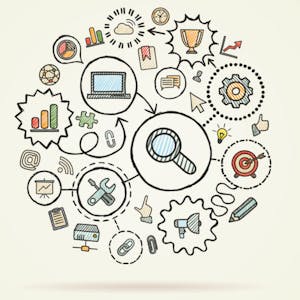Python Fundamentals and Data Science Essentials
About this Course
This course starts with an introduction to Python programming, covering everything from installation and setup of Python and Anaconda to fundamental concepts such as variables, numeric and logical operations, control structures like if-else and loops, and defining functions. The journey continues with in-depth modules on strings and lists, ensuring a solid understanding of these core components. Building on Python fundamentals, you will explore data analysis with NumPy and Pandas. You will learn about array operations in NumPy, manipulating and analyzing data using Pandas, including working with DataFrames, performing data operations, indexing, and merging datasets. These modules are designed to provide you with a strong foundation in data manipulation and analysis, critical for any data science role. The course culminates with an introduction to basic machine learning concepts. You will delve into linear regression, understanding its mathematical foundations and practical applications. Furthermore, you will explore gradient descent, a crucial optimization technique, and KNN classification, one of the simplest machine learning algorithms. Each topic is reinforced with case studies, ensuring you can apply theoretical knowledge to real-world scenarios. This course is ideal for beginners in programming and data science. No prior experience in Python or data analysis is required, but a basic understanding of mathematics will be beneficial.Created by: Packt

Related Online Courses
Wharton\'s Entrepreneurship Specialization covers the conception, design, organization, and management of new enterprises. This five-course series is designed to take you from opportunity... more
This project allows you to discover Mural, an online platform to work in teams remotely and share information. You will understand the various features of the platform and be able to organize your... more
This Specialization on advanced spacecraft dynamcis and control is intended for experienced spacecraft dynamics and GNC engineers and researchers. It is assumed the viewer has completed the prior... more
This course is designed for telecommunication engineers proficient in 3G and 4G technologies. It delves into the specifics of 5G network architecture and protocols, offering a blend of theoretical... more
In this lab you will schedule a Cloud Function to identify and clean up unused IP addresses.Created by: Google Cloud more







